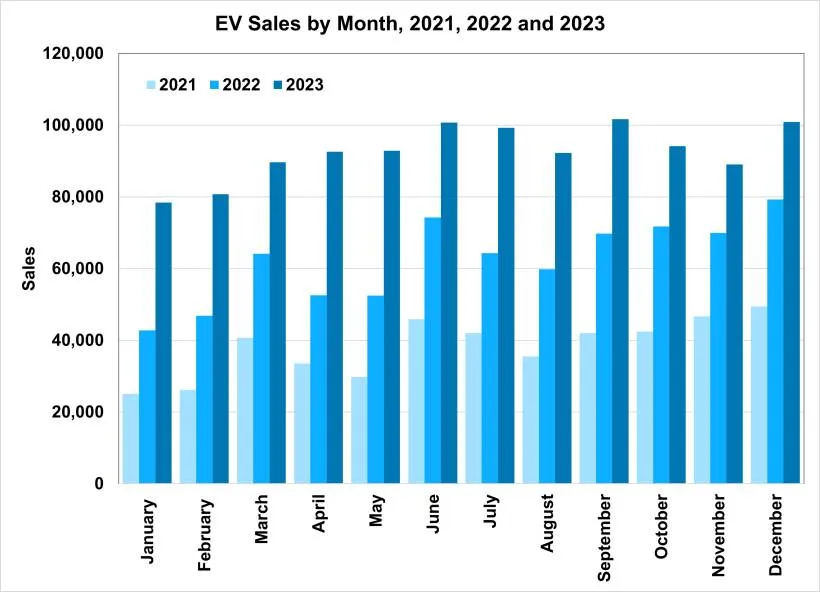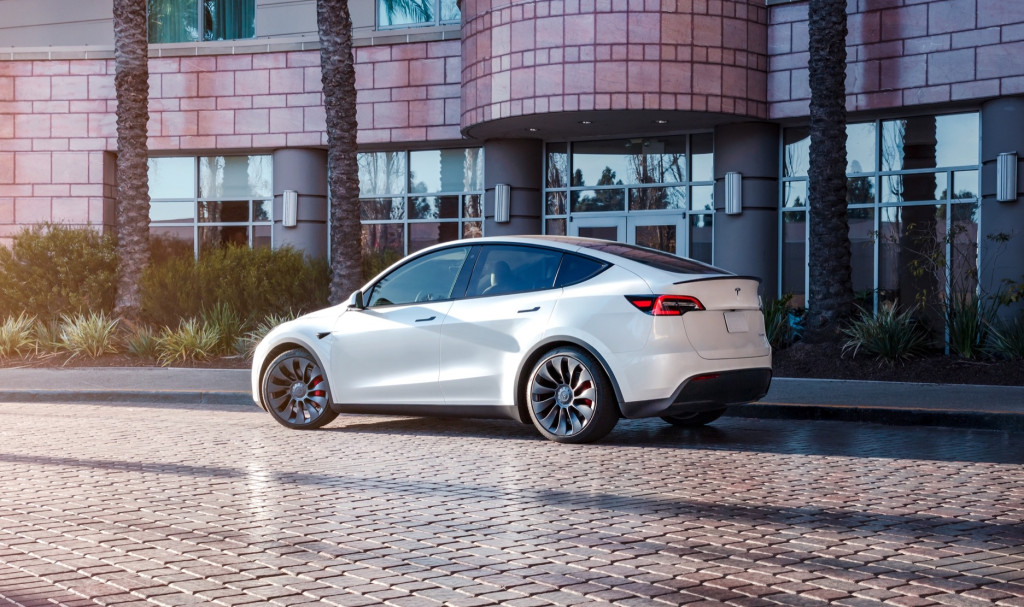EV sales not only increased in 2023 overall, but they were higher than 2022 levels for every month of the year, according to the U.S. Department of Energy (DOE).
Car sales are seasonal, and they always have been, so there’s no reason to expect that total vehicle sales or even EV sales broken out will go up every month. Yet that’s exactly what DOE data show.

EV sales by month in 2021, 2022, and 2023 (via U.S. Department of Energy)
EV sales rose sharply each month of 2023, versus the two years before, according to the DOE. And while the highest sales volume for a single month was about 50,000 vehicles in 2021 and 80,000 in 2022, it surpassed 100,000 vehicles in 2023.
EV sales also rounded out the year with stronger sales in December than in October or November. It’s possible that leading up to the end of the year, some shoppers were deferring purchases to see how the instant dealership rebate incarnation of the federal EV tax credit might be deployed.

2023 Tesla Model Y – Courtesy of Tesla, Inc.
S&P Global Mobility predicted in January that U.S. EV sales would near 8% market share that month. And since then, S&P appended its figures to note that EVs captured 8.8% of the market, by registration, in December 2023, Automotive News reported Friday. Analysts told the publication that, contrary to some auto-industry narratives, EV sales aren’t falling.
Despite some pundits claiming the EV market is sputtering, it’s hard to argue that EV sales don’t remain on an upward trajectory. Instead, as the Automotive News report suggests, they’re increasing slower than some automakers expected—so inept forecasting may be more to blame.
In addition to not moving fast enough to keep pace with some automakers’ business plans, EV sales may need to quicken in order to make a true impact on carbon emissions. Because, as a December 2023 report from Experian found, sales of gasoline vehicles, by sheer number, not percentage, are still growing faster than EV sales.

